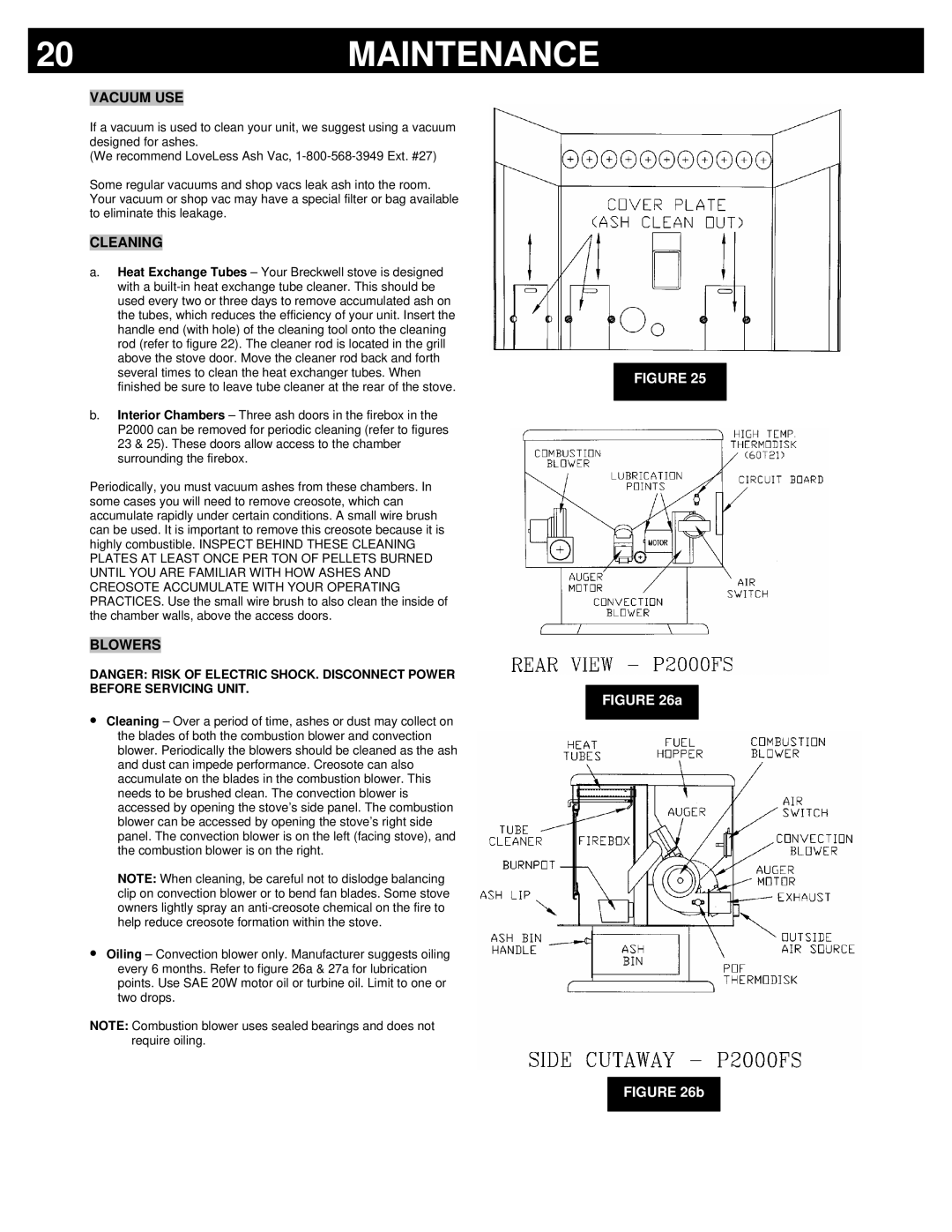
20
MAINTENANCE
VACUUM USE
If a vacuum is used to clean your unit, we suggest using a vacuum designed for ashes.
(We recommend LoveLess Ash Vac,
Some regular vacuums and shop vacs leak ash into the room. Your vacuum or shop vac may have a special filter or bag available to eliminate this leakage.
CLEANING
a.Heat Exchange Tubes – Your Breckwell stove is designed with a
b.Interior Chambers – Three ash doors in the firebox in the P2000 can be removed for periodic cleaning (refer to figures 23 & 25). These doors allow access to the chamber surrounding the firebox.
Periodically, you must vacuum ashes from these chambers. In some cases you will need to remove creosote, which can accumulate rapidly under certain conditions. A small wire brush can be used. It is important to remove this creosote because it is highly combustible. INSPECT BEHIND THESE CLEANING PLATES AT LEAST ONCE PER TON OF PELLETS BURNED UNTIL YOU ARE FAMILIAR WITH HOW ASHES AND CREOSOTE ACCUMULATE WITH YOUR OPERATING PRACTICES. Use the small wire brush to also clean the inside of the chamber walls, above the access doors.
BLOWERS
DANGER: RISK OF ELECTRIC SHOCK. DISCONNECT POWER BEFORE SERVICING UNIT.
∙Cleaning – Over a period of time, ashes or dust may collect on the blades of both the combustion blower and convection blower. Periodically the blowers should be cleaned as the ash and dust can impede performance. Creosote can also accumulate on the blades in the combustion blower. This needs to be brushed clean. The convection blower is accessed by opening the stove’s side panel. The combustion blower can be accessed by opening the stove’s right side panel. The convection blower is on the left (facing stove), and the combustion blower is on the right.
NOTE: When cleaning, be careful not to dislodge balancing clip on convection blower or to bend fan blades. Some stove owners lightly spray an
∙Oiling – Convection blower only. Manufacturer suggests oiling every 6 months. Refer to figure 26a & 27a for lubrication points. Use SAE 20W motor oil or turbine oil. Limit to one or two drops.
NOTE: Combustion blower uses sealed bearings and does not require oiling.
FIGURE 25
FIGURE 26a
FIGURE 26b
